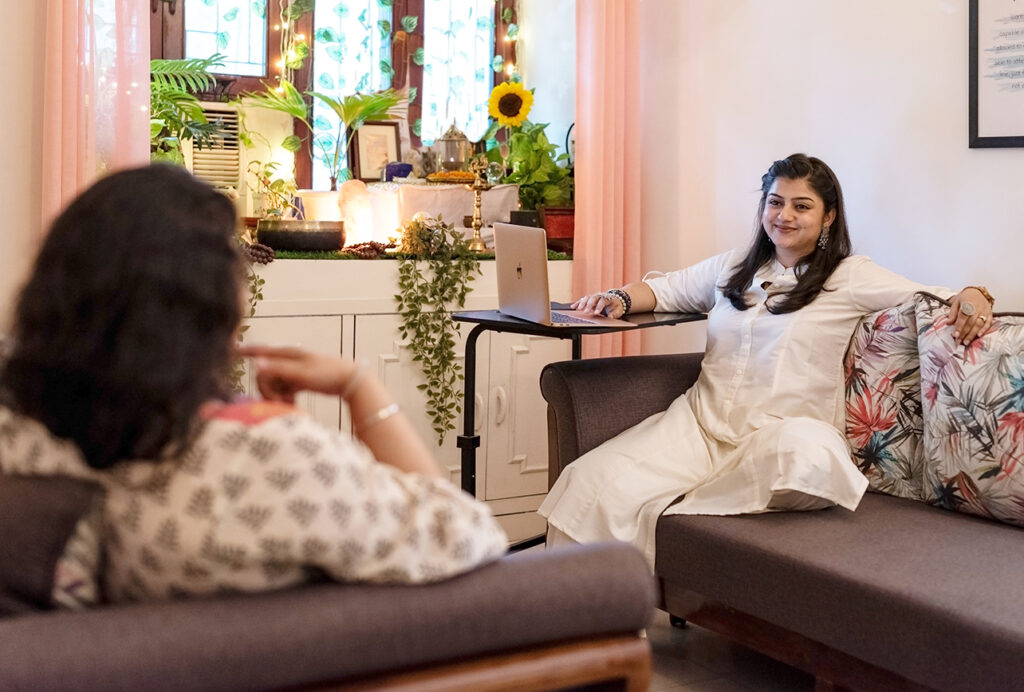Picture yourself waking up early in the morning with warm sun rays on your face, a mind that is so peaceful and calm, that it brings a smile to your face. What a beautiful feeling, right? But instead, do you wake up confused or mentally jumbled and plagued by questions you do not know the answers to?
You may be struggling through a life transition, feeling depressed, having relationship problems, suffering from anxiety, facing daily life challenges, having anger management issues, struggling with substance abuse, or battling a mental health concern. The definition of what constitutes a challenging situation or crisis is different for each individual. What seems trivial to you might be a huge deal for someone else and vice-versa. Each individual has unique life experiences and hence what triggers each is also unique. Irrespective of what your current situation is if you feel anything other than happy and you feel that therapy might help, know that it will. Therapy can help you become more aware of what is it that you’re feeling, why you might be feeling it, and how to cope with it.
How to choose the Best Therapist for you?
When it comes to finding a therapist, it is imperative that you connect with your therapist. You want someone competent, who has relevant knowledge and experience and feels trustworthy. Furthermore, you need someone who can offer you suggestions, resources, and solutions that work for you. Understanding their way of working and approach is crucial to achieving this.
Asking for help is often an overwhelming decision. Sometimes, we become so preoccupied with just getting help from anyone that we often overlook some critical questions about ourselves and the therapist we want to see.
What are some of the questions to ask yourself to choosing the right therapist?
There should be an open and honest line of communication during therapy. Therapy might not always make you feel amazing but it should make you feel safe and comfortable communicating.
Here are a few questions you can ask yourself before you choose a therapist
- What do I want to achieve through this counseling?
It’s helpful to have a starting point in your mind before meeting the therapist. Would you like an open space to vent and cope with daily life? Would you like to change a specific behavior? Or is it to help you through a grieving period of someone you love or to come to terms with an illness? There are times when you may not know what your end goal is and that’s completely fine. Together with your therapist, you can figure out what is needed or what works best for you.
- Do I want a male or a female therapist? Does age or religion matter?
For some people, finding a therapist is about finding someone with whom they feel comfortable working through therapy. This may mean a therapist who shares the same gender identity as you or any other. Similarly, you can also consider the fact of whether you want younger, older, or someone around your age as your therapist. Also to understand if it matters to you that a therapist has a particular religious affiliation. Depending on your situation and comfort you can always choose a therapist based on these factors.
- What qualifications, experience, and specialization do they have?
Generally, therapists tend to specialize in particular genres. Not every therapist will work with children or deal with PTSD issues well. Narrow down your therapist based on your requirements.
- How affordable is it?
It depends on the therapist, your location, and the present rate for therapy. Always ask for the fee details in advance and see if the therapist offers payment plans or a sliding-scale fee plan for people with financial challenges.
- What are your expectations during the communication?
A therapist will encourage you to talk about your problems to identify the root causes and you’re thinking patterns. It is essential to have someone who can not only listen to you but also understand the actions, emotions, and experiences from which you are coming. It is important for you to feel safe and comfortable with the therapist.
- Are you ok with a virtual session, or do you require a face-to-face session?
If you feel connected with your therapist and believe in the effectiveness of the therapy, there is no discernible difference between face-to-face and virtual therapy. However, it is up to each individual to decide what’s best for them.
It’s ok to feel nervous
If you have never experienced therapy before, you are likely to feel nervous during your first session. Observe how you feel and how your therapist is making you feel as you discuss your issues. Does he/she validate what bought you to therapy? It’s okay to let go of your therapist if you don’t feel you connect. At the end of the day, therapy is about You. Therapy and a therapist are about allowing you to explore your own thoughts guilt-free, judgment-free, and bias-free. Talking through your issues, and addressing and acknowledging them in a guided and expert environment can feel liberating. And once you have found a therapist that’s right for you, wait to see the magic in you unfold. We hope this article helped you learn how to choose a therapist. Please share it with someone you think could use the info!

